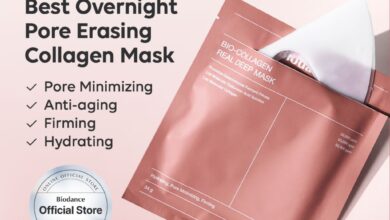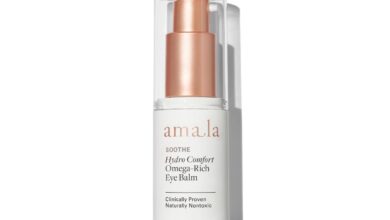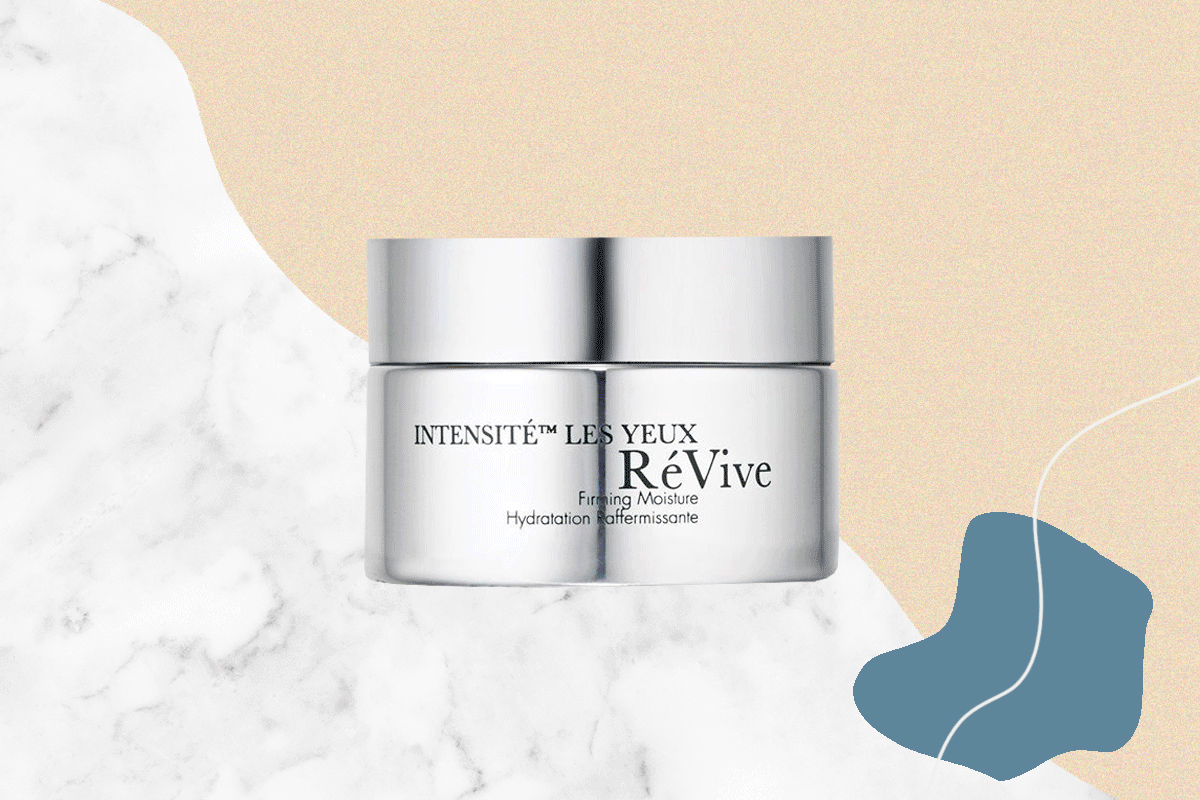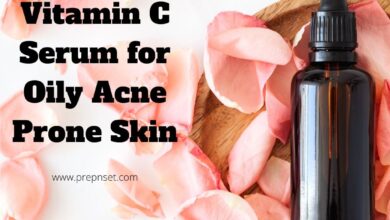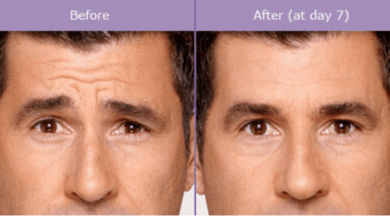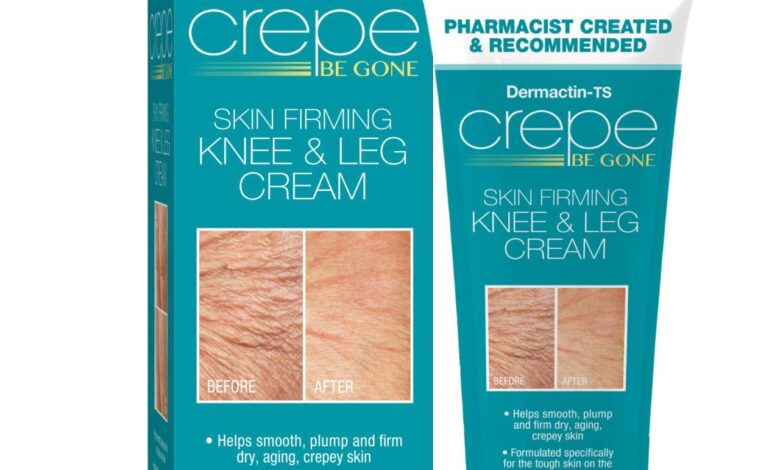
Best skin firming creams are a crucial part of any skincare routine, helping to restore firmness and elasticity to aging or damaged skin. This guide dives deep into the world of skin firming creams, exploring different types, ingredients, and how to choose the perfect one for your skin type and needs. We’ll uncover the science behind these creams, compare popular products, and discuss potential side effects.
From lightweight serums to rich creams, various options cater to diverse skin types. Understanding the mechanisms of action and the key ingredients will empower you to make informed decisions. We’ll also look at lifestyle factors influencing skin firmness and how creams can be incorporated into a holistic skincare routine for optimal results.
Introduction to Skin Firming Creams
Skin firming creams are designed to improve the appearance of sagging or loose skin, often associated with aging, sun damage, or weight loss. These products aim to stimulate collagen and elastin production, boosting the skin’s natural firmness and elasticity. They typically incorporate a blend of active ingredients to target specific skin concerns, addressing the underlying causes of skin laxity.These creams work by addressing the structural components of skin, such as collagen and elastin fibers.
They also use ingredients that hydrate and nourish the skin, improving its overall texture and appearance. Understanding the different types and their mechanisms of action can help you choose the best option for your skin type and needs.
Types of Skin Firming Creams
Different formulations cater to various skin concerns and preferences. Serums, lotions, and creams each have their advantages and are suitable for different skin types. Serums are typically lightweight and highly concentrated, often containing potent active ingredients. Lotions provide a balanced approach, combining hydration with some active components. Creams offer the most intensive hydration and nourishment, often ideal for dry or mature skin.
Mechanisms of Action
Skin firming creams utilize various mechanisms to improve skin firmness. Many ingredients work by stimulating collagen and elastin production, the proteins responsible for skin’s structure and elasticity. Others focus on increasing hydration levels, promoting a plump and firm appearance. Some ingredients work to reduce the appearance of fine lines and wrinkles, contributing to a more youthful complexion.
Collagen and elastin production are crucial for maintaining skin’s firmness and elasticity.
Skin Type Compatibility
Choosing the right skin firming cream depends on your individual skin type. This table provides a general guideline for selecting the most suitable cream based on your skin’s characteristics.
| Skin Type | Cream Type Recommendation | Explanation | Example Brand |
|---|---|---|---|
| Oily | Lightweight Serum | Reduce oiliness and absorb quickly. Lightweight serums are ideal for oily skin as they won’t clog pores. | Example: A |
| Dry | Rich Cream | Intensive hydration and nourishment. Dry skin requires a cream that provides deep hydration and moisture retention. | Example: B |
| Combination | Lotion | Provides balanced hydration and absorption. Lotions can effectively target both oily and dry areas, providing a good compromise. | Example: C |
Key Ingredients in Skin Firming Creams
Skin firming creams promise to combat the visible signs of aging, smoothing wrinkles and tightening sagging skin. Understanding the ingredients behind these claims is crucial for making informed decisions about which products might be right for you. This exploration dives into the most common ingredients, their purported effects, and the scientific rationale behind their use.The quest for youthful-looking skin often involves a blend of ingredients, each with its own set of promises and potential pitfalls.
The efficacy of a skin firming cream is not just about the individual ingredients but also their synergy and concentration.
Common Active Ingredients
A variety of ingredients are employed in skin firming creams, each with different mechanisms of action. These ingredients work on various levels, from boosting collagen production to stimulating cell turnover.
- Retinol: Retinol, a derivative of vitamin A, is a popular ingredient known for its ability to accelerate cell turnover. This process helps to exfoliate the skin, revealing smoother, more even-toned skin and potentially diminishing the appearance of fine lines and wrinkles. Retinol also stimulates collagen production, contributing to skin firmness. The scientific rationale behind its effectiveness lies in its ability to interact with cellular receptors, triggering a cascade of biochemical events that promote skin regeneration.
However, retinol can be irritating to sensitive skin, so gradual introduction and appropriate application methods are crucial.
- Peptides: Peptides are short chains of amino acids. These chains can stimulate collagen and elastin production, proteins crucial for skin elasticity and firmness. The scientific rationale is that peptides mimic natural signals in the body, prompting the production of these essential proteins. Some peptides also promote hydration and reduce inflammation, contributing to overall skin health.
- Hyaluronic Acid: Hyaluronic acid is a naturally occurring substance that attracts and retains moisture in the skin. Its effectiveness in firming creams stems from its ability to plump the skin, filling in wrinkles and fine lines. The science behind this lies in its unique ability to bind water molecules, creating a hydrated and firmer appearance.
- Vitamin C: Vitamin C is a potent antioxidant that protects skin cells from damage caused by free radicals. Free radical damage is linked to the breakdown of collagen and elastin, contributing to wrinkles and sagging. Vitamin C is also involved in collagen synthesis, thus supporting skin firmness. Scientific studies have shown its effectiveness in improving skin texture and reducing wrinkles.
Effectiveness and Side Effects Comparison
The effectiveness and potential side effects of these ingredients vary. Some ingredients may be more suitable for certain skin types than others.
| Ingredient | Mechanism | Effectiveness | Potential Side Effects |
|---|---|---|---|
| Retinol | Cell turnover, collagen stimulation | High (with consistent use) | Skin irritation (redness, dryness), photosensitivity |
| Peptides | Collagen/elastin stimulation | Moderate to High (depending on peptide type and concentration) | Generally well-tolerated, but some individuals may experience mild skin reactions. |
| Hyaluronic Acid | Hydration, plumping | Moderate (primarily for hydration, not significant firming) | Generally safe and well-tolerated. |
| Vitamin C | Antioxidant, collagen synthesis | Moderate to High (depending on concentration) | Potential for mild skin irritation, especially at high concentrations. |
Different individuals will respond differently to these ingredients, based on their skin type, concerns, and lifestyle. A dermatologist can offer personalized recommendations.
Factors Affecting Skin Firming Cream Effectiveness
Skin firmness, a key aspect of youthful skin, is influenced by a multitude of internal and external factors. While skin firming creams can play a significant role in addressing visible signs of aging, their effectiveness is contingent on understanding and addressing these underlying influences. This understanding helps individuals tailor their approach to maximize the potential benefits of these creams.Creams alone aren’t a magic bullet.
Their impact is amplified when combined with a holistic approach that targets the contributing factors, from genetics and lifestyle to specific skin types. A deeper dive into these factors empowers you to make informed choices and achieve optimal results.
Skin Type and Age
Different skin types respond differently to skin firming creams. Oily skin, for instance, might react better to creams with lighter textures and ingredients that promote oil control. Dry skin might require moisturizing creams with ingredients that enhance hydration, which in turn can help support elasticity and firmness. Age also plays a critical role. Younger skin may benefit more from creams focused on preventative measures and collagen stimulation, while mature skin might require creams that address wrinkles and sagging more directly.
Genetics and Skin Firmness
Genetics significantly influence skin firmness. Individuals with a predisposition towards loose or sagging skin might find that creams are less effective without addressing the underlying genetic predisposition. While creams can’t alter your genes, they can support the production of collagen and elastin, which are crucial for maintaining skin firmness. Targeted ingredients like peptides and growth factors can potentially enhance the skin’s natural restorative mechanisms, supporting skin firmness in alignment with genetic predispositions.
Lifestyle Choices and Skin Firmness
Lifestyle choices exert a profound influence on skin firmness. A balanced diet rich in vitamins, antioxidants, and collagen-boosting nutrients provides the building blocks for healthy skin. Regular exercise improves blood circulation, delivering essential nutrients to the skin cells and contributing to overall skin health. Conversely, sun exposure can damage collagen and elastin, leading to premature aging and decreased firmness.
Lifestyle Factors and Skin Firmness: A Table, Best skin firming creams
| Lifestyle Factor | Impact on Skin Firmness | Suggestions for Improvement |
|---|---|---|
| Diet | Nutrient deficiencies can affect collagen production, leading to decreased skin elasticity and firmness. A diet lacking in essential vitamins and minerals can negatively impact collagen synthesis, resulting in a visible loss of firmness. | Consume a balanced diet rich in collagen-boosting foods like fish, eggs, and leafy greens. Prioritize fruits and vegetables for essential vitamins and antioxidants that support skin health. |
| Exercise | Regular exercise improves blood circulation, delivering oxygen and nutrients to the skin, which supports collagen production and overall skin health. Inactivity can lead to reduced blood flow, impacting the delivery of essential nutrients to the skin cells. | Incorporate regular physical activity, such as brisk walking, jogging, or strength training, into your routine. Aim for at least 30 minutes of moderate-intensity exercise most days of the week. |
| Sun Exposure | Prolonged or unprotected sun exposure damages collagen and elastin, leading to premature aging, wrinkles, and decreased skin firmness. UV radiation from the sun directly harms collagen and elastin, the structural proteins responsible for skin’s firmness and elasticity. | Always wear sunscreen with an SPF of 30 or higher when exposed to the sun, especially during peak hours. Seek shade whenever possible, and cover exposed skin with protective clothing. |
Product Comparisons and Reviews
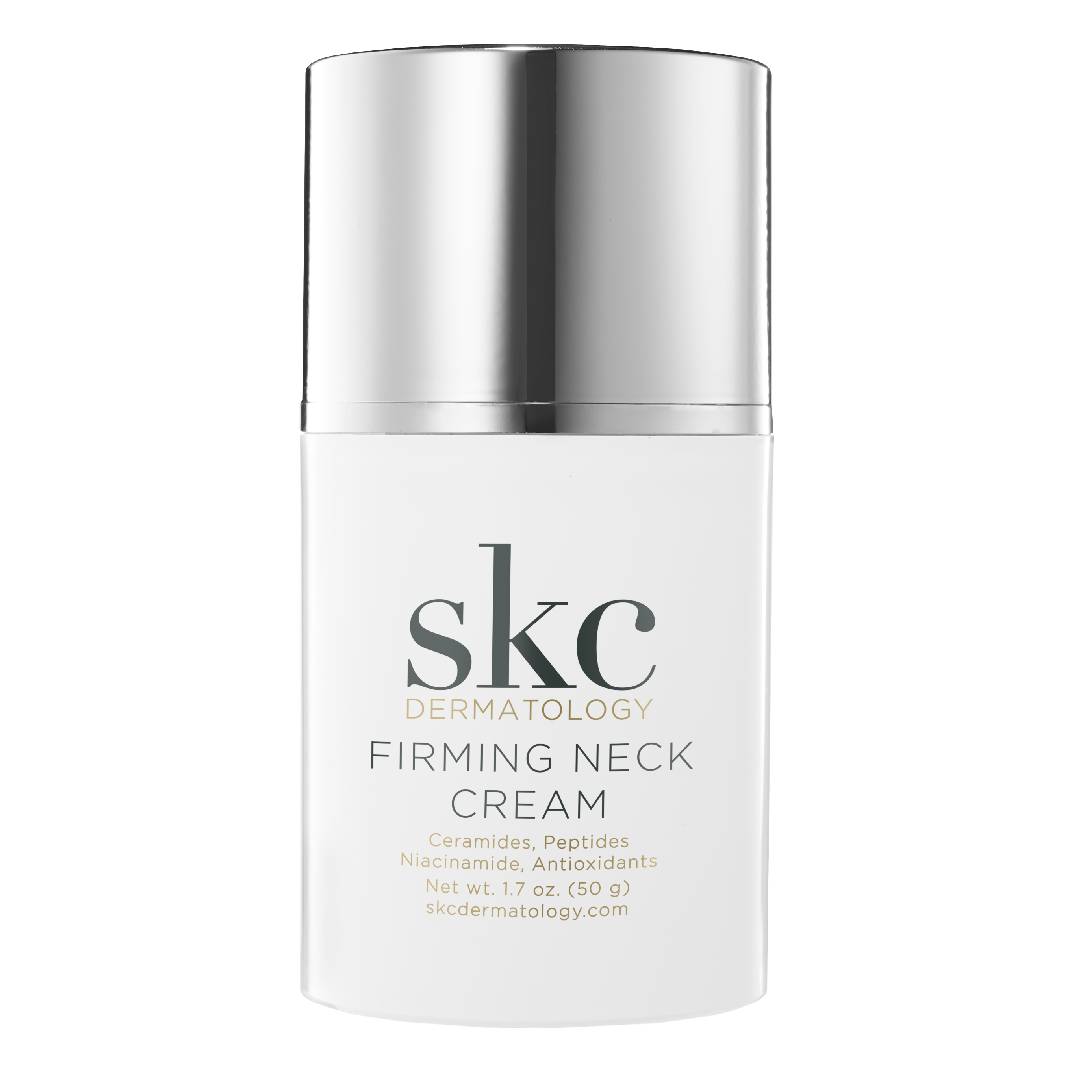
Choosing the right skin firming cream can feel like navigating a complex beauty aisle. Understanding the strengths and weaknesses of different products, backed by user experiences, is crucial for making an informed decision. This section delves into popular choices, highlighting key features and providing valuable insights from real users.
Overview of Popular Skin Firming Creams
The market offers a wide array of skin firming creams, each with its own unique blend of ingredients and promises. Popular brands often focus on different aspects of skin health, ranging from hydration to collagen stimulation. Some creams target specific concerns, such as wrinkles or sagging, while others are more general-purpose. A thorough understanding of the product formulations and user experiences is essential for selecting the most effective option.
Key Features and Comparisons
Different skin firming creams vary significantly in their formulations and intended benefits. Some prioritize ingredients like hyaluronic acid for hydration, while others emphasize peptides or retinol for collagen stimulation and skin renewal. Creams may also contain antioxidants, vitamins, and other active compounds to address specific concerns. Comparing the active ingredients and the claims made by each brand helps consumers understand the potential benefits and limitations of each product.
Finding the best skin firming creams can be a real quest, especially when you’re trying to combat the visible effects of time and stress. It’s a bit like navigating the complex emotional landscape of adolescence, which, let’s be honest, can be pretty tough sometimes, as seen in the Netflix series the miserable realism of adolescence netflix. Ultimately, the right cream will depend on your individual needs and skin type, but exploring different options is key to finding what works best for you.
User Reviews and Testimonials
Real-life experiences provide invaluable insights into the effectiveness of skin firming creams. User reviews offer a direct perspective on how products perform in everyday use. The following table summarizes user feedback, categorizing it by product name.
| Product Name | User Review | Rating |
|---|---|---|
| Cream A | “Improved skin tone and texture. Noticeably smoother after a few weeks of use.” | 4.5/5 |
| Cream B | “Visible reduction in wrinkles after consistent use. A little greasy, but worth it.” | 4.2/5 |
| Cream C | “Didn’t see much improvement in firmness, but my skin felt incredibly hydrated and soft.” | 3.8/5 |
| Cream D | “This cream is amazing! My skin feels so much tighter and lifted. I’m seeing great results.” | 4.8/5 |
Analyzing User Feedback
The table above showcases diverse user experiences with different skin firming creams. Analyzing these reviews highlights variations in results and user preferences. Some users report significant improvements in skin tone and texture, while others emphasize reductions in wrinkles. The varying ratings indicate that individual responses can differ greatly depending on the specific product and individual skin characteristics.
Finding the best skin firming creams can be tricky, but it’s worth the effort! Spring is all about new beginnings, and that includes a fresh, firmer complexion. Thinking about those fabulous, larger-than-life shoes for spring, like the ones featured in springs new shoes larger than life , I’m reminded of how important it is to take care of my skin.
Investing in good skin firming creams can really help, and that’s what I’m focused on right now.
Understanding these differences is crucial for selecting a suitable product.
Speaking of looking good, best skin firming creams are a total game-changer. They’re amazing for maintaining a youthful glow, especially as we age. Recently, I was completely captivated by Demi Moore’s stunning backless suit at the Mikey Madison bow Oscars nominee dinner, here’s the full story. The outfit, of course, highlighted her amazing figure, but maintaining that kind of radiant skin takes serious dedication.
And let’s face it, the best skin firming creams are a huge part of that.
Application and Usage Guidelines: Best Skin Firming Creams
Unlocking the full potential of your skin firming cream hinges on proper application and consistent use. This isn’t just about slapping some cream on; it’s about integrating it seamlessly into your existing routine for maximum impact. Following a structured approach, incorporating the cream into your routine, and understanding the importance of consistency will all contribute to achieving your desired results.
Optimal Application Methods
Effective application is crucial for maximizing the cream’s absorption and impact. Avoid simply rubbing the cream onto your skin. Instead, use gentle, upward strokes, following the natural contours of your face and body. This technique encourages better penetration and promotes a more even distribution of the active ingredients. Applying the cream in the morning and evening, after cleansing, will maximize its effectiveness.
Incorporating into a Comprehensive Skincare Routine
Integrating a skin firming cream into a comprehensive skincare routine ensures that all aspects of your skin’s health are addressed. Start with a gentle cleanser to remove impurities, followed by a serum (if used) to target specific concerns. Then, apply the firming cream, allowing it to fully absorb before applying makeup or other skincare products. This layered approach allows each product to work synergistically, maximizing its potential.
Consistency: The Cornerstone of Results
Consistency is paramount when using skin firming creams. Results don’t appear overnight; they develop over time through consistent daily application. Think of it like any fitness routine; a single workout won’t transform your physique. Similar to this, consistent use of a skin firming cream builds upon itself, leading to gradual improvement in skin firmness and elasticity. A regimen of consistent application, even if it’s just a few minutes each day, will yield the best long-term results.
Step-by-Step Application Guide
This guide Artikels a simple, effective process for applying skin firming creams:
- Cleanse your skin: Gently cleanse your face and/or targeted area with a mild cleanser, paying attention to removing any makeup or impurities. This prepares the skin to receive the cream.
- Apply the serum (optional): If you use a serum, apply it after cleansing and allow it to absorb before applying the cream. This will allow the serum to penetrate more effectively and will further enhance the firming effect.
- Apply the cream: Using your fingertips, gently massage the cream onto your skin, following the natural contours of your face and neck. Focus on areas where you desire firmness improvement, such as the jawline, neck, and décolletage. Apply a pea-sized amount to start, and add more as needed, ensuring even coverage.
- Allow absorption: Let the cream absorb completely into your skin. Avoid rubbing or applying additional products immediately afterward. Allowing the cream to absorb will prevent the cream from being disturbed and ensure better penetration into the skin.
- Follow up (optional): Apply moisturizer or makeup as per your routine. The skin firming cream can be applied under your moisturizer, and if you choose to apply makeup, apply it after the cream has been fully absorbed.
Potential Side Effects and Precautions
Skin firming creams, while promising, can sometimes cause unwanted reactions. Understanding potential side effects and taking appropriate precautions is crucial for safe and effective use, especially for individuals with sensitive skin. Careful consideration of ingredients and application methods can significantly minimize the risk of adverse effects.Using skin firming creams can lead to a range of reactions, from mild irritation to more serious issues.
It’s essential to be aware of these possibilities and to approach these products with a cautious, informed perspective. A thorough understanding of potential side effects and how to address them empowers you to make the best choices for your skin health.
Potential Skin Reactions
A variety of skin reactions can arise from using skin firming creams. These reactions often depend on individual skin sensitivities and the specific ingredients in the cream. Common skin reactions include irritation, allergic reactions, and contact dermatitis.
- Skin Irritation: This is a common side effect, often characterized by redness, itching, and a burning sensation. This reaction typically arises from harsh chemicals or ingredients in the cream that irritate the skin barrier.
- Allergic Reactions: Allergic reactions can manifest as hives, swelling, or difficulty breathing. This reaction involves an immune system response to a specific ingredient within the cream. Common allergens include fragrances, preservatives, and certain botanical extracts.
- Contact Dermatitis: Contact dermatitis results from direct contact with a substance causing skin inflammation. The reaction can range from mild redness and itching to more severe blistering and pain. Certain ingredients, especially those with known irritant properties, can lead to this condition.
Precautions for Sensitive Skin
Individuals with sensitive skin should take extra precautions when using skin firming creams. Sensitive skin is more prone to irritation and allergic reactions. Therefore, it’s crucial to follow the product instructions carefully and to select creams specifically formulated for sensitive skin types.
- Patch Testing: A patch test involves applying a small amount of the cream to a discreet area of skin, like the inside of the forearm, and observing for any reaction for 24-48 hours. This helps to identify potential sensitivities before widespread application.
- Gradual Introduction: Begin with a small amount of the cream and gradually increase the application frequency over time. This approach allows your skin to adjust to the new product.
- Ingredient Awareness: Thoroughly research the ingredients in the cream. Look for products with a simpler formulation and avoid those with known irritants or allergens.
Addressing Adverse Reactions
If you experience an adverse reaction to a skin firming cream, it’s essential to address it promptly. Stopping use of the cream is the first step. Applying a soothing moisturizer or cold compress to the affected area can help alleviate discomfort. If symptoms worsen or persist, consulting a dermatologist is recommended.
- Immediate Action: Stop using the cream immediately if you notice any signs of irritation or allergic reaction. Remove any remaining product from the skin.
- Soothing Measures: Apply a cool compress or a mild, hypoallergenic moisturizer to the affected area. Over-the-counter hydrocortisone cream may help reduce inflammation.
- Professional Consultation: If symptoms persist, worsen, or involve other body parts, consult a dermatologist for proper diagnosis and treatment.
Table of Potential Side Effects and Remedies
| Side Effect | Description | Possible Remedies |
|---|---|---|
| Skin Irritation | Redness, itching, burning, stinging | Reduce application frequency, switch to a gentler product, use a soothing moisturizer. |
| Allergic Reaction | Hives, swelling, rash, difficulty breathing | Stop use immediately, seek medical attention if severe. |
| Contact Dermatitis | Redness, blisters, scaling, pain | Stop use immediately, apply a cold compress, consider consulting a dermatologist. |
Closing Notes
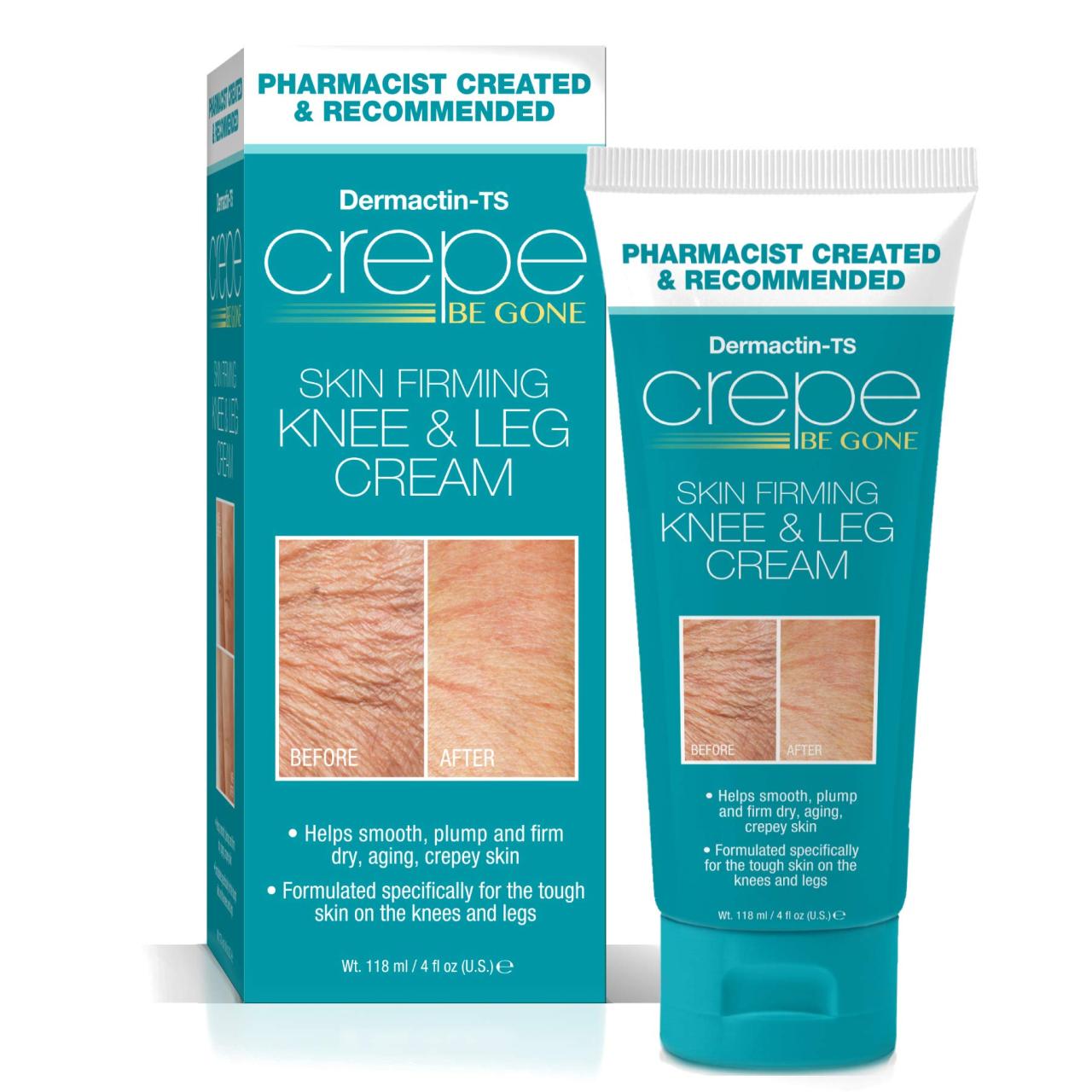
Choosing the best skin firming cream is a personalized journey. This guide equips you with the knowledge to navigate the market and select a product that addresses your specific skin concerns. Remember, consistency is key. By understanding the science, ingredients, and your own skin type, you can confidently incorporate a skin-firming cream into your routine for a more youthful, radiant complexion.
Don’t forget to prioritize your skin’s needs and consult with a dermatologist if necessary.

